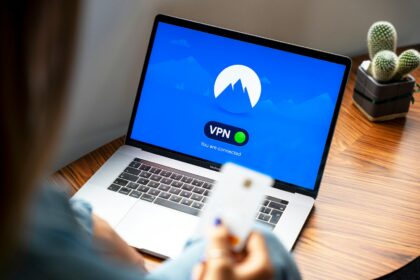Let’s explore a major paradox in today’s job market. Everywhere, you see headlines about a huge cybersecurity talent shortage. Millions of jobs are open, yet companies struggle to find skilled professionals to protect against digital threats. You might think, “This is my chance!” But, as you search for your first job, you hit a roadblock. Every job posting seems to demand three to five years of experience.
This situation feels like a cruel joke. It’s hard to get experience when you need it to get a job. This reality frustrates many aspiring cybersecurity professionals. They ask a simple question: Is it easy to get into cybersecurity without experience?
The short answer is no, it’s not easy. But the more important answer is that it is absolutely possible. You just need a different approach. You must understand what employers mean by “experience.” You need to be clever, dedicated, and willing to create your own path. This guide will help you navigate this paradox, find hidden entry points, and create your own experience. You can find Entry-Level Cyber Security Jobs With No Experience, but you must approach it differently.
The Great Paradox: Why “Entry-Level” in Cyber Isn’t What You Think
Cybersecurity is not a field where you start from scratch. It’s a specialized field, much like medicine. You can’t become a heart surgeon overnight. You need to learn the basics of the human body and general medicine first.
Cybersecurity is similar. To protect a network, you must understand how it works. To secure a server, you need to know how to administer it. This is why companies often look for candidates with IT backgrounds. They can’t afford to have someone learn on the job, as a single mistake could be disastrous. As cybersecurity consultant Stephane Nappo said, “It takes 20 years to build a reputation and a few minutes of cyber-incident to ruin it.”
This creates the “experience required” paradox. Companies aren’t looking for five years of cybersecurity experience. They want a foundational understanding of IT systems. They look for candidates who have been in technical environments and understand the basics. This is a key distinction. The problem isn’t the lack of experience; it’s looking for it in the wrong place.
The Strategic Detour: Real Entry-Level Cyber Jobs Are in IT
For most, the path into cybersecurity isn’t direct. It involves a detour through IT. These roles are called “feeder roles” because they prepare talent for cybersecurity. Working in IT support, network administration, or systems administration is invaluable. It is the most valuable experience you can get.
Why? Because in these roles, you’re on the front lines. You learn the architecture, vulnerabilities, and user behaviors of corporate networks. You’re effectively learning to protect the very environment you’ll work in later. Many successful security professionals began their careers this way.
Let’s examine the most common feeder roles and the secret cybersecurity skills you learn in each.
| Feeder Role | Core Responsibilities | Cybersecurity Skills You’re Secretly Learning | Average Entry-Level Salary (USD) |
|---|---|---|---|
| IT Support Technician / Help Desk | Responding to user issues, setting up new user accounts, installing software, troubleshooting device problems. | Endpoint Security: You are the first line of defense for laptops and desktops. Access Control: You manage who gets access to what, learning the principle of least privilege. Social Engineering Awareness: You see phishing attempts and user errors firsthand. |
$53,000 |
| Network Engineer | Designing and building data networks, implementing security measures like firewalls, analyzing network traffic. | Network Security: You learn how firewalls, VPNs, and network segmentation work in the real world. Traffic Analysis: You learn to use tools like Wireshark to see what’s happening on the network. Intrusion Detection: You understand what normal network behavior looks like, which is key to spotting attacks. |
$70,000+ |
| Systems Administrator (Sysadmin) | Managing servers, maintaining system functionality, performing backups, managing user accounts in systems like Active Directory. | Server Hardening: You learn how to configure servers securely. Identity and Access Management (IAM): You become an expert in managing user permissions in Active Directory. Incident Response: You are involved in recovering systems after an issue, which is a core security skill. |
$72,000+ |
This table reveals that these roles are more than just fixing printers. They are about learning the systems you’ll protect later. Viewing these roles as a strategic part of your journey is key to unlocking Entry-Level Cyber Security Jobs With No Experience.
Forging Your Own Experience: The No-Job-Required Toolkit
What if you can’t or don’t want to take a feeder role? What if you want to build your skills right now, from home? Good news: you can. You can create your own experience. To overcome an employer’s fear of hiring someone with only book knowledge, you must provide them with undeniable proof of your hands-on skills. This is your personal toolkit for success.
This approach has three core components: Certifications to get you past the automated resume filters, a Home Lab to build real, practical skills, and a GitHub Portfolio to show the world what you can do. Together, these three things create a virtual apprenticeship. They allow you to confidently tell a hiring manager, “I may not have had a security job before, but here is the documented proof that I can do the work.”
Certifications: Your Key Past the HR Gatekeepers
Certifications are the first step. They are the common language that HR departments and resume-scanning robots understand. They signal that you have, at a minimum, a validated baseline of knowledge. For many jobs, a specific certification like CompTIA Security+ is not just recommended; it’s a hard requirement.
For someone just starting, two certifications stand out: the CompTIA Security+ and the (ISC)² Certified in Cybersecurity (CC). They are both excellent, but they serve slightly different purposes. Choosing the right one is your first strategic decision.
| Feature | CompTIA Security+ | (ISC)² Certified in Cybersecurity (CC) |
|---|---|---|
| Focus | Practical, hands-on skills. Covers core security functions and implementation. | Foundational, theoretical principles. Covers the ‘what’ and ‘why’ of security. |
| Exam Format | Up to 90 questions, including multiple-choice and Performance-Based Questions (PBQs) that simulate real tasks. | 100 multiple-choice questions. |
| Difficulty | Considered more difficult. The PBQs require practical knowledge and critical thinking. | More beginner-friendly and conceptual. |
| Cost (USD) | Around $400. | Often free, as (ISC)² is running a “One Million Certified in Cybersecurity” campaign. |
| Prerequisites | None officially, but CompTIA Network+ or 1-2 years of IT experience is highly recommended. | None. Designed for complete newcomers. |
| Industry Recognition | The gold standard for entry-level. Required for many U.S. government (DoD 8570) and contractor jobs. | Newer, but from the highly respected organization behind the advanced CISSP certification. A great starting point. |
| Best For… | People with some IT background who want to prove hands-on readiness. A must-have for anyone targeting government jobs. | Absolute beginners, career-changers from non-tech fields, or anyone on a tight budget. |
The Home Lab: Your Personal Training Ground
This is where the magic happens. A home lab is your personal, safe playground to experiment, build, break, and fix things. It is the single most important thing you can do to gain practical experience without a job. When an interviewer asks, “Tell me about a time you configured a firewall,” you won’t have to talk about a textbook. You can talk about what you did last weekend in your lab.
Getting started is easier and cheaper than you think:
- Hardware: You don’t need a rack of servers. A decent desktop or laptop computer is all you need. Aim for at least 16GB of RAM, a multi-core processor, and a solid-state drive (SSD) for better performance. A used mini-PC can also be a great, power-efficient option.
- Software: Use free virtualization software. Oracle VirtualBox is a fantastic, free choice for beginners. VMware Workstation Player is another great option. This software lets you run multiple “virtual” computers inside your physical computer.
- Operating Systems: You can download everything you need for free. Get evaluation copies of Windows Server from Microsoft’s website. Download different versions of Linux, specially Kali Linux, which is packed with security tools.
Project Spotlight: Build a Basic Active Directory Lab
This is the perfect first project. Why? Because Active Directory (AD) is the heart of most corporate networks. It manages user identities and permissions. It’s also a huge target for attackers. Understanding how it works from the inside is a massive advantage.
Here’s a simple plan:
- Create a Server VM: Install Windows Server on your first virtual machine (VM). This will be your “Domain Controller”.
- Set Up Active Directory: Follow a guide to promote your server to a Domain Controller. Give your fictional company a name, like “AlexsSecureCorp.local”.
- Create a Client VM: Install Windows 10 on a second VM. This will be your “employee” computer.
- Join the Domain: Connect your Windows 10 VM to the Active Directory domain you just created.
- Practice!: Now you have a mini-corporate network. Create a few user accounts (e.g., “jsmith,” “adoe”). Put them in different groups. Practice resetting passwords. Try to log in to the client machine with your new user accounts. Write a simple PowerShell script to create 10 users at once.
By completing this one project, you have gained more hands-on experience with a critical enterprise system than most applicants who have only read about it.
The GitHub Portfolio: Proving You Can Do the Work
A resume is a piece of paper where you claim you have skills. A portfolio is where you prove it. GitHub is a platform where developers share code, but it has become the modern resume for all technical professionals. For someone seeking entry-level cyber security jobs with no experience, a well-maintained GitHub profile is your most powerful weapon. It’s a public, verifiable record of your skills, your passion, and your initiative.
What do you put in a cybersecurity portfolio? It’s not about building complex applications. It’s about showing your process and your knowledge.
- Home Lab Documentation: This is your number one project. Create a new “repository” (like a project folder) on GitHub for your Active Directory lab. Write a detailed “README.md” file. This is the front page of your project. Explain what you built. Include screenshots of your setup. Add the PowerShell scripts you wrote. This shows you can not only do the work but also document it professionally.
- Capture The Flag (CTF) Write-ups: Platforms like TryHackMe and Hack The Box offer challenges where you practice hacking into vulnerable machines. After you solve a challenge, write a step-by-step guide explaining how you did it. Document the tools you used and what you learned. This showcases your problem-solving skills and offensive security mindset.
- Simple Scripts: Write a simple tool in a language like Python. A basic port scanner that checks for open ports on a machine is a classic first project. It shows you have basic coding skills, which are increasingly important in security.
- Detection Rules: After you simulate an attack in your lab, try to write a rule to detect it. You can create simple detection rules in a format called Sigma, which can be used by security tools called SIEMs. This demonstrates defensive thinking and shows you understand both sides of the coin: attack and defense.
Remember the README: The quality of your documentation is as important as the project itself. A good README file should clearly explain the project’s purpose, how to use it, and what you learned. This shows communication skills, which are just as valuable as technical skills.
The Human Element: Your Unique Story and Network
Technical skills, certifications, and a great portfolio will get you an interview. But your story, your soft skills, and your network are what will get you the job. This is true for career-changers. Your background in another field is not a weakness; it is your unique strength.
You Have More Transferable Skills Than You Think
Cybersecurity encompasses more than just technology. It involves risk, business, and human interaction. Professionals from other fields bring a unique perspective, often missing in purely technical backgrounds.
- A pharmacist, eager to transition into cybersecurity, found her knowledge of HIPAA regulations invaluable. She secured a compliance officer role within her company, leveraging her healthcare experience.
- An elementary school teacher discovered that her skills in communication, policy, and risk assessment were highly transferable. She successfully transitioned into a government cybersecurity role.
- An accountant’s attention to detail and methodical approach were perfect for analyzing security logs. She now works in a security role at a Fortune 100 company.
Reflect on your background. Are you adept at:
- Problem-Solving? This is fundamental to all security work.
- Communication? The ability to explain complex technical risks to non-technical managers is invaluable.
- Attention to Detail? In security, small oversights can lead to significant breaches.
- Business Acumen? Understanding that security supports business success, not just obstruction, is critical.
Frame your past experience in these terms. Don’t hide it. Leverage it.
Breaking In Through People, Not Just Applications
Submitting hundreds of resumes online may yield nothing. Yet, connecting with one person can transform your career. Networking is about building genuine relationships and seeking advice. Many entry-level cyber security jobs with no experience are filled through referrals before they are advertised online.
Here are your action steps:
- Optimize Your LinkedIn Profile: Your headline should highlight your strengths, not just seek a job. For example: “Security+ Certified | Building an Active Directory & SIEM Home Lab | Career-Changer Passionate About Blue Team Defense.” Showcase your projects on GitHub.
- Attend Meetups: Engage with local security groups. BSides conferences are great for beginners. Local DEFCON group meetings are also beneficial. The goal is to make friends, learn, and become part of the community.
- Master the Informational Interview: This is your secret weapon. Don’t ask for a job. Ask for advice. People enjoy discussing their work and helping those genuinely interested. Reach out to managers or senior team members at admired companies for a brief chat.
Here is a template you can adapt:
“Hi [Name],
I’m a and I’m passionate about breaking into cybersecurity. I’ve been building my skills with a home lab focused on [Mention a Project] and I recently earned my Security+ certification.
I saw you’re a at [Company], and I’m impressed by your company’s work in [mention something specific]. I know you’re busy, but would you be open to a brief 15-minute chat? I’d love to hear your advice on starting out in the field.
Thank you for your time and consideration.”
This approach shows initiative, respect for their time, and a genuine desire to learn. It leads to conversations, and conversations lead to opportunities.
Conclusion: It’s a Marathon, Not a Sprint
Securing an entry-level cyber security job with no experience is a daunting task, yet achievable. The path is straightforward. Begin by establishing a solid foundation, whether through an IT role or personal projects in a home lab. Showcase your abilities with recognized certifications and a portfolio of your work. Utilize your distinct background and cultivate a network of professionals who can support and open doors for you.
The path to success demands patience, persistence, and a deep love for learning. Bruce Schneier’s wisdom, “Security is a process, not a product,” resonates deeply. The learning you undertake is not merely a stepping stone to employment. It is the core of a cybersecurity career. The field’s dynamic nature and the constant evolution of threats underscore the perpetual need for dedicated, inquisitive, and passionate individuals.
The journey ahead is arduous, yet it commences with a single step. Begin today. Install VirtualBox. Enroll in a free course. Engage in TryHackMe challenges. The path to a rewarding career and securing Entry-Level Cyber Security Jobs With No Experience is constructed incrementally. It’s built on each skill, project, and interaction. The need is evident, and the chance is genuine. Now, seize the opportunity.

























